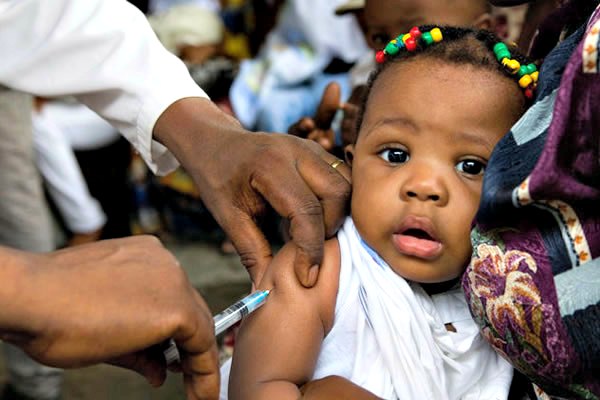By Patrick C Ezie
Since the beginning of time and as long as man has existed, things have existed, which have the ability to kill man, not just from the adverse threats from harsh weather, starvation, flood, and wild animals which plagued the early man but from a unique kind of organism too small to be visualized by the human eyes, organisms which with the progress of scientific development, will become identified as microbes and the harmful categories of these microbes further identified and termed pathogens (a bacterium, virus, or other microorganism that can cause disease).
These organisms are present all around us and have the ubiquitous nature of sometimes surviving and thriving in the air, water, soil, and even in the human body where a continuous battle ranges daily between the body defenses and these pathogens. The result of these microscopic confrontations are a change in the normal functions of the body, disrupting the regular function of body systems thereby and creating what we have all come to know as DIS-EASE. (A disorder of structure or function in a human, animal, or plant, especially one that produces specific symptoms)
Human Beings have evolved through centuries and have throughout our lifetime on the planet learnt how to first conquer his environment as seen in the early men who lived in caves and learnt to control fire to prevent death from hypothermia (extreme cold) or hot conditions to prevent death from these adverse conditions. The early Man progressed to understand the difference between poisonous foods and nutritious plants in the environment. He also learnt that some plants had medicinal purposes through trial and error.
However, the modern man faces a different threat from a range of pathogens largely unseen, which have developed capabilities of infiltrating the body systems and causing diseases which can take a plethora of forms ultimately resulting in morbidity or mortality if the disease process is not prevented.
A lot of these scientists such as Louis’ Pasteur, whose discoveries led to the development of vaccination and pasteurization; Albert Sabin and Jonas Salk who worked towards the development of the polio virus vaccine; and Robert Koch who through his work created a postulate for the identification of diseases and the need for isolation of disease especially in infectious cases, dedicated their lives to the study and identification of how to stop these harmful pathogens from decimating the population of mankind. Their work remains the invisible barrier that protects mankind from the onslaught of pathogens.
The work of these great men and many others have laid the foundation for the international collaboration of countries across the world through the United Nations, and the World Health Organization has, over the years developed policies and guidelines which are accepted and domesticated by the member states to ensure that protocols regarding immunization (the process whereby a person is made immune or resistant to an infectious disease, typically by the administration of a vaccine) are effected to ensure the prevention of vaccine-preventable illnesses.
How does vaccination work?
The body has natural defenses which protect the body from invading organisms; these defenses are both nonspecific and specific. The Nonspecific defenses include the skin, nasal hairs, cilia in the windpipe, acid in the stomach, These processes ensure that a vast majority of invading organisms are destroyed by the body , However for those that escape this nonspecific process, the human body has in its design specific defenses which occur in different types quite similar to the way a country’s defense are stratified into Police force, Navy, Army, Airforce and of course of there are specific units, such as the counter terrorism squad, the SSS etc. In the body these specific defenses are uniquely created to attack a host of microorganisms with the weaponry at their disposal. Some of these cells can engulf the organism and digest them, some cells produce chemicals that destroy the invading organisms.
However during such battles, there are losses on both sides and if the body cells are severely damaged, the pathogen goes on to multiply, and destroy more of the body tissues, eventually resulting in the death of the Host.
During immunization, scientists isolate the pathogen causing a particular disease and weaken it significantly outside the body through artificial means. When the weakened version of the pathogen is introduced into the body through immunization it stimulates the process of the body immune cells to react and acquire a memory of that invasion, so that whenever it is exposed to a real threat, the response is fast enough to eradicate the threat.
At birth also the newborn’s immune system is still immature and hence young children and newborns are very susceptible to vaccine-preventable diseases. However some Antibodies are transferred to the child via breastfeeding to protect the child for some time, hence the role of Exclusive Breastfeeding cannot be underestimated.
The Benefits of Immunization Include:
- Immunization confers protection of that individual to prevailing diseases in that region: This is why there are concerted efforts to ensure that all children are immunized against illness that is vaccine-preventable which include BCG – Tuberculosis, OPV – Polio, HBV – Hepatitis, DPT -Diphtheria, pertussis, Tetanus Vaccine, and others which include measles, Cerebrospinal meningitis, typhoid fever, yellow fever, etc. which are widespread in the African region.
- Immunization has resulted in the drastic reduction in mortalities and morbidities such as wasted limbs in polio, gibbus (humpback in TB). Since the inception of the polio virus vaccine, the rate of polio cases have dropped exponentially that it is almost on the brink of extinction.
- Immunization protects the children from suffering fatal forms of the illness. A lot of illnesses if allowed to attack children for the very first time result in fatal outcomes because their immune systems are still immature to galvanize an appropriate response to the invading organisms.
- Immunization reduces the spread of epidemics: Epidemics results when the Herd immunity (a form of indirect protection from infectious disease that occurs when a large percentage of a population has become immuneto an infection, thereby providing a measure of protection for individuals who are not immune) to a particular illness is very low. This means that a vast majority of the population do not have the immunity to resist that particular disease as we see in Ebola, Lassa which are not yet vaccine-preventable and as a result, a lot of mortalities result whenever there is an outbreak.
- The cost economics of immunization are cheaper for the family, society, and government, as it costs more to treat individuals who develop the illness and even more to maintain those who survive with morbidities such as flaccid limbs, mental retardation.
- Immunization also ensures that the health systems can channel scarce resources to focus on more non-vaccine-preventable illness such as cancer, diabetes, Malaria.
- Immunization drives economic development and ensures that a vast majority of a country’s citizens are able to commit their best efforts towards the development of the country as it reduces the number of sick days in hospital by that particular illness.
- Immunization has led to the eradication of some diseases such as smallpox in 1967 and Rinderpest in 2011.
The role of immunization in the ensuring that children born live healthy, productive lives and grew into adulthood cannot be overemphasized. In the days of HIV, Ebola, Lassa, Dengue fever and other Hemorrhagic fevers, scientists and medical practitioner pray for a vaccine to protect the vulnerable populations most of which are largely still be under testing. It is however sad that for most of the illnesses which vaccines exist, there is still a nonchalance by a few to subject their children to the above benefits because of personal ideologies or religious idiosyncrasies. This happens because they do not understand the havoc these illnesses have caused in history, the loss of lives that occurred when vaccines did not exist, if people were better informed about those times, they would better understand immunizations as a gift to humanity.
About the Author: Patrick C Ezie is a Medical Doctor, an Associate Member of the World Medical Association (WMA), the Executive Director for Africa Junior Doctors Network, and publicity secretary of the Nigerian Medical Association. He contributes in various health journals across Africa.




